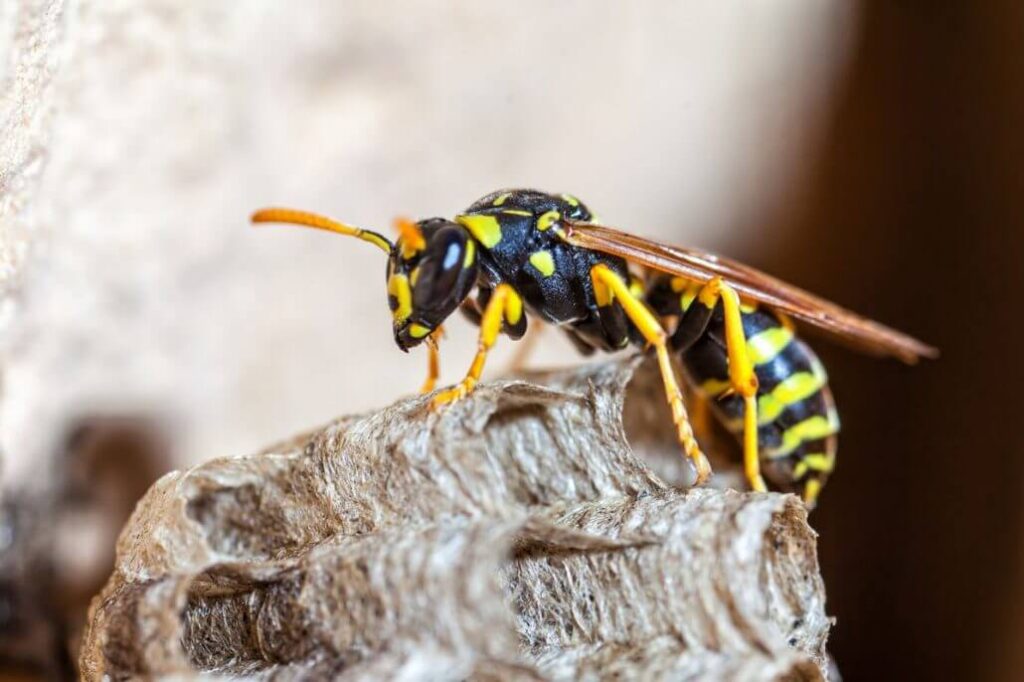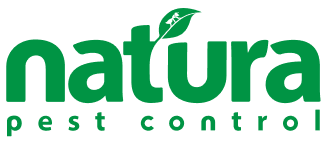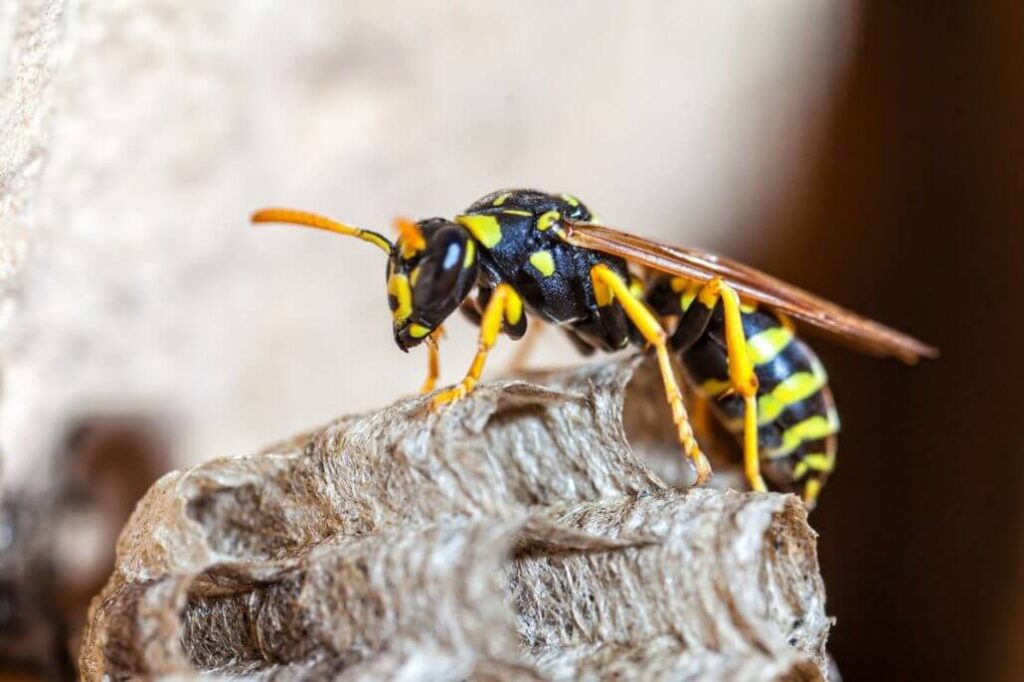
Updated April 27, 2025
Wasps buzzing around your home? Not exactly the soundtrack you want playing during your backyard barbecue. From yellow jackets and paper wasps to hornets and mud daubers, these buzzing pests can quickly turn your outdoor haven into a nightmare.
And if they’ve decided to cozy up inside your house? Even worse!
Let’s talk about how to kill wasps, get rid of wasp nests, and reclaim your space once and for all.
Why Wasps Come Indoors
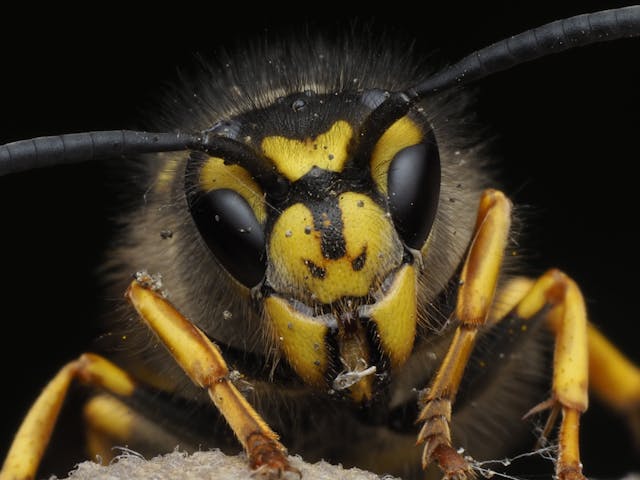
Wasps don’t just barge into your house for fun. If you’re spotting wasps in the house, it usually means they’re on a mission.
Food is one of the biggest reasons you’ll find wasps inside the house. Sweet scents from fruit, sugary drinks, or even trash can lure them right through open doors or windows. If your home has easy entry points like torn screens, unsealed vents, or gaps in the siding, wasps will take advantage of them to come indoors.
When the weather cools down, queen wasps start scouting for safe spots to hibernate until spring. Your attic, garage, wall voids, or even storage boxes can seem like perfect hideaways for a queen yellow jacket trying to survive the cold months until it’s time to build a new colony.
Sometimes, though, a wasp gets inside purely by accident. They might wander through an open door or window, get trapped while exploring, or follow light sources indoors. But if you’re seeing more than just a stray wasp in the house, chances are good there’s a nest nearby or a bigger issue that needs attention.
How to Find a Wasp Nest
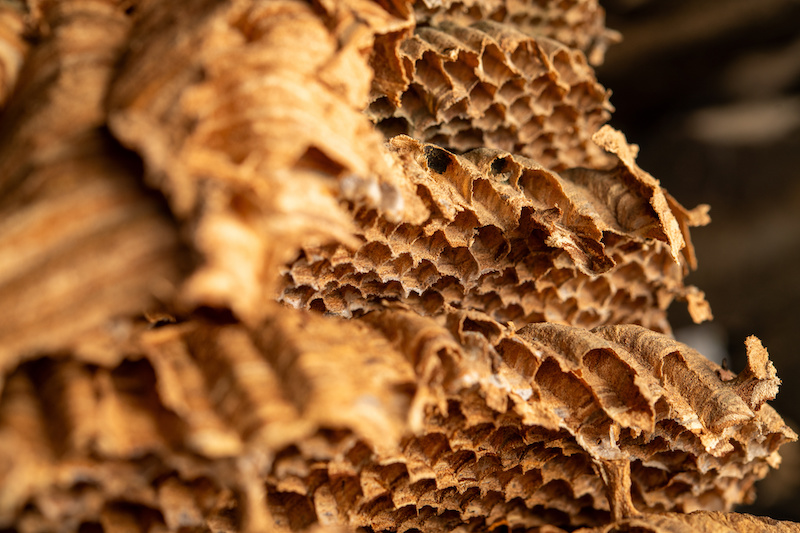
Before you can even think about how to eliminate a wasp nest, you’ve got to find it. Wasps are sneaky little architects that love tucking their nests into dark, protected spots. And if you’re dealing with wasps in your house or buzzing around your yard, it’s time to play detective. Here’s how to track them down:
- Follow Their Flight Path: Watch where the wasps are coming from and heading to. Whether it’s under a porch, a roofline, or a tiny gap in your siding, their flight patterns will spill all their secrets.
- Inspect Eaves, Roofs, Attics, and Sheds: Wasps love high, protected areas. Check under eaves, along rooflines, and inside attics and sheds. Paper wasps especially prefer these elevated spots for building their signature umbrella-shaped nests.
- Inspect Cracks and Crevices: Wasps are opportunists. Little gaps, cracks, or holes can become prime real estate for a nest, especially yellow jackets.
- Look Underground or Inside Walls: Not every nest is out in the open. Yellow jackets, in particular, love to set up shop in burrows, wall voids, or hidden corners. If you’re hearing a faint buzzing from your walls or seeing them darting in and out of the ground, you’ve probably got a nest on your hands.
Once you’ve pinpointed their hideout, you’re one step closer to getting rid of them for good.
How to Safely Kill Wasps in Your Home
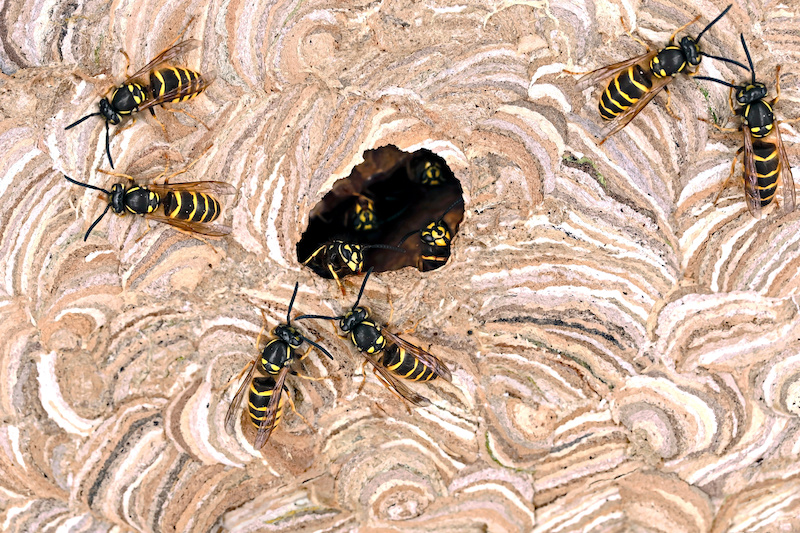
Spotting wasps in the house can be downright nerve-wracking. Whether it’s a black wasp buzzing around your living room or a yellow jacket that’s found its way inside, handling them safely is the priority. The key? Know how to deal with them without turning your home into a battleground.
- Seal Them In: The moment you spot a wasp indoors, close off the room. Shut doors, cover vents, and keep them confined to one area. Wasps are much easier to handle when you’re not worried about them darting from room to room.
- Trap and Release: A simple glass and paper trap can do the trick for the occasional stray wasp. Gently cover the wasp with a glass, slide a piece of paper underneath, and release it outdoors. If you prefer a more hands-off approach, sugar-and-water traps work great. Mix sugar and water in a tall glass bottle and leave it near where you’ve seen the wasp. It’ll crawl in for the sweetness and struggle to get back out.
- Peppermint Oil Repellent: Wasps can’t stand peppermint oil. Soak cotton balls in peppermint oil near windows, doors, or any entry points. It’s a natural, effective way to keep them from making themselves at home.
- Vacuum Method: Spot a wasp in an area that’s hard to reach? Use a vacuum with a long hose attachment to safely suck it up. It’s quick and far less stressful than swatting or chasing it around.
Now, if you’ve noticed repeated wasps getting into the house or suspect there’s a wasp nest hidden somewhere inside, you’ve got a bigger problem on your hands.
Why Removing a Wasp Nest Yourself Is a Bad Idea
Trying to remove a wasp nest sounds straightforward, but it’s rarely that simple. Wasps are aggressive defenders of their nests, and without the right tools and protective gear, you could end up with a painful sting (or several).
- They Fight Back: Wasps are fiercely territorial. Messing with their nest can trigger a swarm that’s ready to defend their turf. And unlike bees, wasps can sting repeatedly.
- Nests Aren’t Always Visible: You might think the nest is gone, only to discover it’s tucked away in your attic or wall void. Missing part of the nest means wasps will keep finding ways to get inside.
- DIY Methods Aren’t Always Effective: Sure, dish soap or peppermint oil might repel a few wasps, but when it comes to destroying a nest, that’s a whole different ballgame. Sprays and traps can be hit-or-miss, especially if you’re dealing with a full-blown infestation.
When wasps take over, it’s best to leave it to the experts. Tackling nests on your own can be risky, especially if they’re hiding in tricky spots or swarming near your home. When you need wasp pest control in the Vancouver, WA, or Portland, OR, area, give us a call!
